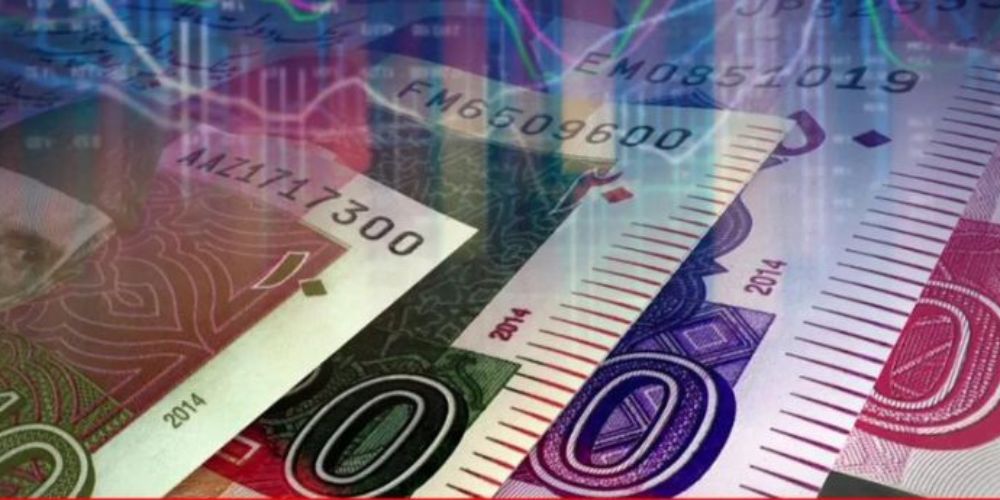KARACHI: As the rupee continues to decline more quickly than the market anticipates, concerns about the nation’s economic health—particularly its capacity to pay the import bill for necessities in the coming weeks—are growing. The reduction in the central bank’s foreign exchange reserves, which have dropped to almost nine-year lows of $4.34 billion, has had the biggest impact on the exchange rate.
The stock market, which is also in fall and is being affected most by political unpredictability and unsettling economic indicators, dropped 3.5 percent on Tuesday to settle at 38,342.21 points.The rupee has declined “despite being handled by the State Bank of Pakistan (SBP),” according to currency analysts. It ended Tuesday at Rs228.66 in relation to the dollar.
The last time the local currency appreciated against the dollar was on December 1 when it advanced 0.12 percent to close at 223.69. The rupee has dropped 1.25 during the last six sessions as the slide has accelerated recently. Due to a lack of dollars, the difference in rates between the interbank and open markets has grown dramatically, severely harming the economy and directing remittances away from the official banking system and onto the black market.

A top banker claimed that “a sharp decrease in the foreign exchange reserves has caused irreparable loss to the economy and destroyed corporate confidence.”
Bankers predict that the nation will soon notice a shortage of food and other necessities like gasoline goods.
“Since China gave $2.5 billion in June, there have been no sizable inflows. Despite low imports and typical remittance inflows of $2 billion each month, we are keeping an eye on the outflows, according to Atif Ahmed, a currency expert in the interbank market.
He lamented that the country’s ability to obtain aid from any other nation and donor agencies had been completely damaged and that the SBP’s reserves of $4.34 billion were frightening for the nation.
The finance ministry has assured the exporters of allowing imports for inputs, but the currency experts were still looking for improvement. “We need immediate help to save the country from default and the people from a situation like Sri Lanka,” said a currency dealer.
Exporters, on the other hand, applauded the move but claimed it was too late as they had already lost a sizeable portion of the global market, notably in textiles where Bangladesh had grown its lead over the previous six months.
Shakil Kakvi, a director of a local textile manufacturing and exporting business, stated: “We received some orders from abroad, but we have already shuttered several plants owing to a paucity of orders and the unavailability of gas.” He did note that not all exporters were receiving orders, though.
Some analysts have also suggested that the lack of dollars may result in gasoline and diesel shortages over the next two to three months, which would hurt commerce, industry, and even the agricultural sector, which depends on diesel during the harvest season.
“The key for Pakistan is the dollar. While awaiting Chinese assistance in the form of a debt rollover, everyone is watching and waiting for the IMF negotiations to resume.
.


